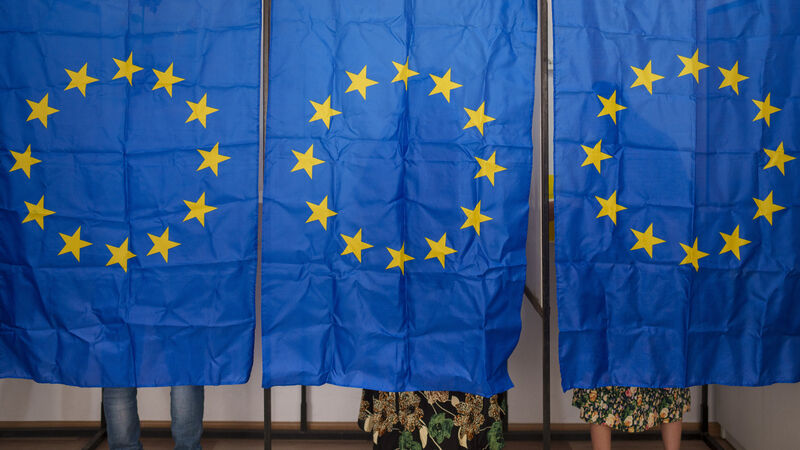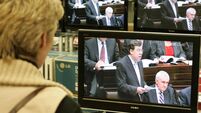EU elections: German and Dutch exit polls suggest shift to hard right

The first major estimates coming out of the European Union parliamentary elections suggest that the hard right will rise in the legislature while the centre might hold up better than expected, leaving the Greens to take the hardest hit.
In Germany, a traditional bulwark for environmentalists, the Greens were predicted to fall from 20% to 12%, with more losses expected in France and several other EU nations.














